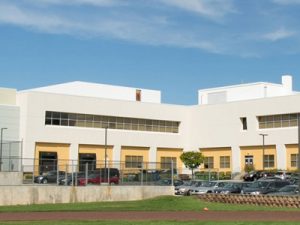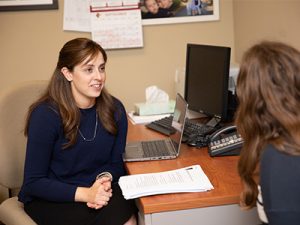Philosophy, Politics and Economics
Frisch’s Philosophy, Politics, and Economics (PPE) Track (offered in partnership with The Tikvah Fund) will explore the most pressing political and social issues of the modern age and the most important thinkers and texts of political philosophy and modern economics. Modeled after similar PPE programs at elite universities around the world, such as Oxford and Hebrew University, students will explore the deeper roots of the great debates of our time—such as freedom of speech and freedom of religion, health-care policy and immigration, nuclear proliferation and cyber-warfare, the clash among great world powers and the future of Middle East diplomacy, free markets vs. socialism, and the moral challenges facing communities and families. This program aims to prepare future leaders interested in politics, journalism, diplomacy, world affairs, and social entrepreneurship, by grounding our students in a mix of core American and Jewish values. We will draw upon the most advanced current analysis of public policy (from journals, newspapers, television, and film) and the most enduring works of political and economic thought, like Adam Smith, Edmund Burke, Thomas Paine, and Tocqueville. We will engage in spirited townhall debates and will be joined regularly by leading thinkers and public figures. We will engage in regular off-campus trips to explore real-life policy issues on the ground and in the civic arena. And we will pay special attention to how these great questions affect both American Jews and Israel.
The Philosophy, Politics, and Economics Track is a four-year sequence, moving from the most urgent current issues to the deeper study of political philosophy, strategy, and modern economics.
9th Grade: The Great Political Debates of the Modern Age—and How to Understand Them
In the opening year, we begin with real-life policy issues, introducing students to the idea that the spirited arguments swirling around us on television and social media actually point us toward more fundamental questions about the nature of freedom, the quest for justice, and the search for the good life and good society. Democracy and self-government depend upon reflection and choice, and our aim is to help students understand the nature of the choices we face as Americans and as Jews. Issues include:
- Does freedom of speech always serve the public good?
- Should public education dollars help support religious schools?
- What is the best way to provide healthcare and economic security to needy citizens?
- What drives economic growth or economic failure?
- How does a nation decide whom to welcome as citizens?
- How can America or Israel prevent terrorist attacks before they happen?
- How should America deal with undemocratic nations around the world?
By beginning with familiar and urgent issues, we will discover the need to explore more fundamental questions of political philosophy, economic thought, and the lessons of history.
10th Grade: Freedom and Community: The Foundational Ideas of Modern Political and Economic Thought
In year two, we go deeper, reading some of the most important works of political and economic thought. In each unit, we will focus on “great debates” between seminal thinkers, such as:
- Edmund Burke and Thomas Paine on the nature of the political left and right
- Adam Smith and Karl Marx on economic freedom vs. socialism
- Alexis de Tocqueville and John Dewey on the nature of American social and communal life
- Simone de Beauvoir and Rabbi Joseph Soloveitchik on the nature of the family
As we read and explore these great works, we will continue to keep our eye on current issues, drawing connections between the enduring dilemmas of human nature and the issues that burn so hot today in American and Jewish life. We will explore themes such as freedom and order, the individual and the community, wealth and poverty, equality and inequality, tradition and progress, love and children, men and women, religion and science.
11th Grade: War, Diplomacy, and Human Nature: The Foundational Ideas of Strategy
In year three, we will turn our attention to the great debates at the heart of world politics, war and peace, and international diplomacy. Our curriculum will combine the careful study of classic texts and thinkers—such as Thucydides, Machiavelli, Clausewitz, and Hannah Arendt—alongside the exploration of key moments of decision and models of statesmanship—such as Napoleon, Herzl, Woodrow Wilson, Mao, and Churchill.
12th Grade: The Jewish Citizen & Independent Policy Project
In year four, we will focus on two key areas. As a group, we will return to some of the great current policy, cultural, and economic issues, explored through a specifically Jewish angle of vision:
- Can Jewish ideas help renew and strengthen American democracy?
- What are the most pressing political and economic issues facing the American Jewish community today?
- Are there tensions between our interests and values as Jews and as Americans?
- And how should American Jews—and all Americans—relate to Israel?
In parallel, each student will choose a specific policy area to explore in great depth as an independent study/capstone project. We will connect each student with a senior mentor, and these independent projects will culminate in a series of public presentations and townhall-style debates for the whole Frisch community, as well as private briefings for experts in the field, giving students the experience of what it would really be like to work in the White House or a senior government office.





